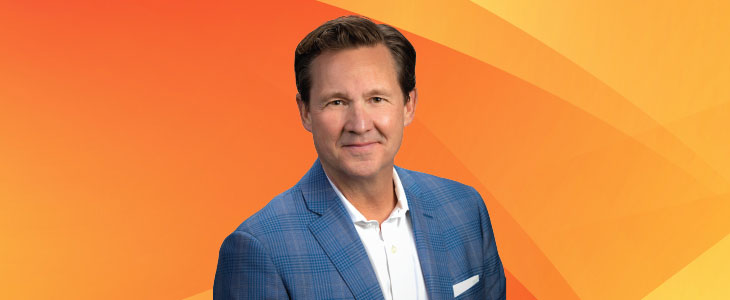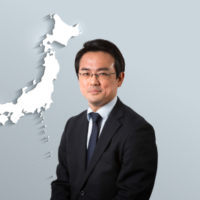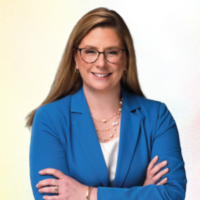
ACAMS Today had the opportunity to speak with Scott Liles, president and managing director of ACAMS, to discuss his career evolution and the future of the association. He was appointed president and managing director in November 2020 and brings considerable global experience and expertise across a multitude of consumer-facing sectors.
Most recently, Liles served as the president of two of Nationwide Insurance’s growth and innovation companies. He led the turnaround of Nationwide Pet Insurance, a $500 multi-million market leader in pet health insurance. Liles also launched Spire Insurance, a new company in Nationwide’s portfolio that is innovation-driven, mobile first and millennial-focused.
Over the course of his career, Liles has served as a legislative aide in Texas, an economist in South Africa, the director of a United Nations development initiative in Vietnam, a senior manager with Accenture in London and San Francisco, and an associate principal with McKinsey & Company in Washington, D.C. He earned an MBA from the London Business School and a master’s in economics from the University of Cape Town.
ACAMS Today: Congratulations on joining the ACAMS team! What drew you to ACAMS?
Scott Liles: I was drawn to ACAMS’ mission-driven nature. Last year’s challenges reminded the world that everyone is interconnected and interdependent. This reminder helped shaped my decision to work for an organization with a global and noble mission to end financial crime. Having worked in development assistance in the Global South to having consulted in Europe and Asia, I grew my career in mission-driven organizations. Most recently, I joined ACAMS from Nationwide, a large financial institution (FI) in the U.S., where I helped build a new industry-disrupting business. I have come to learn firsthand that one of the most rewarding things is to work for an organization that helps people around the world in a meaningful way. I am very excited to lead the growth and development of a global membership organization such as ACAMS.
AT: What are ACAMS’ goals for 2021?
SL: ACAMS celebrates its 20th anniversary this year—two decades of a membership organization spread across 175 countries. The number of members and the breadth of our impact has never been higher. Who would have thought 20 years ago that ACAMS would offer a suite of products that address the full spectrum of financial crime compliance education and training needs across all lines of defense? We now also have a dedicated sanctions ecosystem and resource center for our members, as well as two free global certificates: the Fighting Modern Slavery and Human Trafficking certificate that was launched in June 2020 and the Ending Illegal Wildlife Trade certificate launched in October 2020. Both are offered free of charge to our global community and these are very important issues to address as these are predicate crimes to money laundering.
What excites me about 2021 is the opportunity to renew focus on our members and the industries affected by our core work. This year, we strive to improve our operations; develop collaborative counteraction strategies to address global issues; increase the diversity of our workforce, panels and members; and drive the thought leadership that has led to our gold-standard reputation in the industry.
Compliance is a team effort. Whether you are one of many at a multinational institution, working solo at a small firm or within government, we all rely on the experience and guidance of the organizations and individuals who make up the global compliance community, which is another way of saying that we all rely on each other. That is the strength of the ACAMS membership and my goal is to strengthen this membership to help us all overcome compliance complexity.
AT: Which anti-financial crime (AFC) topics are you most passionate about?
SL: There is much I am passionate about, but I can tell you I am simply fascinated by our work in the fintech space. Compliance officers have long been among the first to flag suspicious financial activity but increasing activity on digital payments and banking platforms has created additional responsibility on an organization’s compliance team to root out criminal behavior. Fintechs—often entrepreneurial market disruptors by nature—are faced with the twin challenges of growing their footprint in a highly competitive, innovation-driven sector while playing catch-up with anti-money laundering compliance controls traditional FIs have adhered to for decades. In a sector where compliance staff often have to straddle unrelated roles simultaneously and where market fluctuations can translate into swift changes for any business, how can we continue to provide support and resources to establish a strong compliance culture and ensure enterprise-wide awareness of a firm’s financial crime risks? There is immense opportunity in this space, and I look forward to sharing more in the coming months.
AT: What are you most looking forward to in your journey with ACAMS and the AFC community?
SL: I am grateful for the support that has been given to me by the ACAMS team, advisory board and our members. I have been given an incredible welcome. I am most looking forward to growing the organization and driving positive outcomes through impactful partnerships and effective solutions. This can only happen through a strategic and thoughtful process to support a global community dedicated to ending financial crime.
To quote one of our advisory board members, Sharon Campbell, executive general manager financial crime operations and transformation, National Australia Bank: “Stopping financial crime is not a competitive sport across financial institutions, across countries, across the world. We share ideas and what we’re doing. We talk about new technologies or new approaches that we’re taking. We talk about new typologies that we’re seeing or trends in the industry across the world.” This pretty much sums up the power of this community!
AT: What do you think are ACAMS biggest strengths and what would you like to do to build on this?
SL: The solid and admirable foundation that the organization has been built on and the sheer diversity of our membership are ACAMS’ greatest strengths. We have a truly great opportunity to drive meaningful change in this space especially in the area of diversity, equity and inclusion (DEI).
We have engaged in countless conversations about what DEI looks like across different continents and parts of the world, took part in surveys for us to better understand the strengths, opportunities and challenges that ACAMS should consider as it seeks out solutions, discussed how we will lead by example on DEI and how we can further integrate DEI as a way of being across all of our operations.
We identified three key pillars that will anchor our DEI work including:
- Our commitment to our colleagues
- Our commitment to our community
- Our position and influence as a changemaker
This work, which is central to our mission and business priorities, will allow us to have the greatest impact on identifying and removing barriers of entry—and making progress toward uprooting the deeply interconnected systemic injustices baked within society’s foundation.
Our commitment is grounded in our belief that change always starts with us—from the inside out. I look forward to being part of this change for our global community.
AT: Is there anything else you wish to share with the ACAMS membership?
SL: While the scale of damage resulting from the ongoing pandemic remains unclear, we at ACAMS are thankful for all that the global compliance community has accomplished to fight financial crime and help vulnerable communities during these challenging times. As we go forward into 2021, I look forward to your continued support and membership.
Interviewed by: Stephanie Trejos, CAMS, editor, ACAMS, Miami, FL, USA, strejos@acams.org










